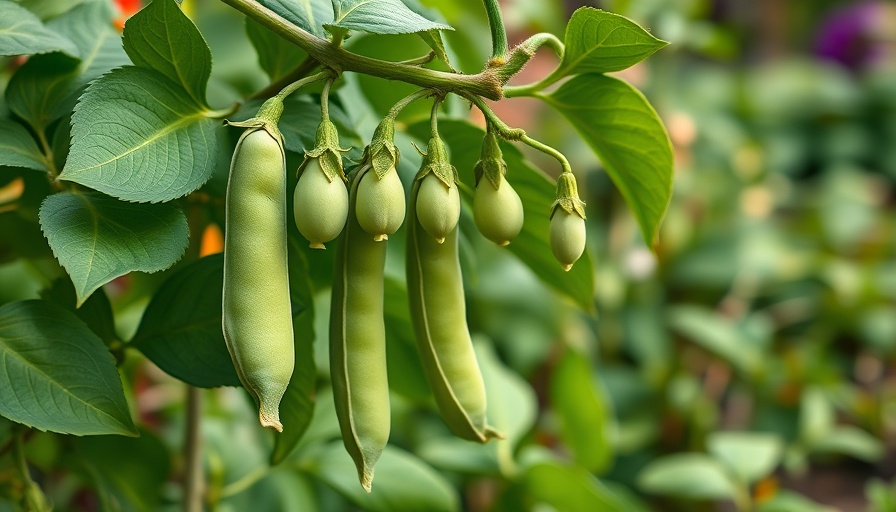
Uncover the Benefits of Growing Snow Peas
Snow peas are a delightful addition to any home garden. Not only do they require no shelling, making them a convenient snack, but they’re also low in calories and packed with nutritional benefits. Each pod contains proteins, fibers, vitamins, and minerals that contribute to a balanced diet. Snow peas can also enhance your culinary creations, from salads bursting with flavor to stir-fries that wow your family and friends.
The Right Conditions for Success
Snow peas thrive in cooler weather, making them perfect for early spring planting. Ideal temperatures for optimal growth range between 55 to 65 degrees Fahrenheit. To ensure a great harvest, consider planting your snow peas six weeks before the last frost in your area. If you’re feeling ambitious, planting a second round in late summer can yield a fantastic fall crop.
Choosing Your Snow Pea Varieties
When selecting snow peas to grow, you have excellent choices like 'Oregon Sugar Pod II' and 'Mammoth Melting.' The former is a bush variety, perfect for smaller gardens and containers, while the latter is a climbing variety that can reach heights of up to six feet, providing you with an impressive vertical garden display. Additionally, unique types like the purple-podded 'Royal' can add visual interest along with their great taste.
Effective Planting Techniques
Planting snow peas involves proper timing and site selection. A well-drained, sunny spot is ideal, but snow peas can tolerate some shade. After ensuring the soil is prepared, sow the seeds directly into the ground about 1 to 2 inches apart. They typically emerge within one to two weeks, so keep an eye on your planting area for the first signs of growth.
Harvesting and Enjoying Your Snow Peas
Your snow peas will be ready to harvest roughly 60 days after planting. Look for plump pods—these are the best for snacking or cooking. It's crucial to harvest frequently to encourage continued growth. Plus, they taste best when freshly picked! If you find you're harvesting more snow peas than you can consume, consider blanching and freezing them for future use.
Healthy Gardening Practices
Growing snow peas not only benefits you but also positively impacts your garden’s health. As legumes, they play a significant role in fixing nitrogen in the soil, which can enhance the growth of subsequent crops. Crop rotation is beneficial too; if you’ve recently planted other legumes, rotating your crops helps maintain soil vitality.
The Appeal of Homegrown Snow Peas
Growing snow peas is a rewarding experience for homeowners looking to cultivate their gardens. Not only do they bring fresh flavors to your meals, but they also provide a sense of accomplishment as you tend to your garden and reap the fruits of your labor.
 Add Row
Add Row  Add
Add 


 Add Row
Add Row  Add
Add 

Write A Comment